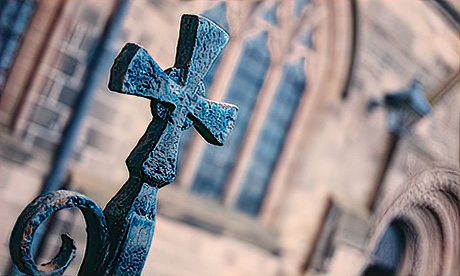Last week a gathering of Anglicans from the Pacific Region began their Conference in Canberra by announcing the creation of a new Anglican Diocese of the Southern Cross with former Archbishop of Sydney, Dr Glenn Davies as bishop.
This diocese is not part of the Anglican Church in Australia but is linked to the majority of the world’s Anglicans through the Primates Council of the GAFCON network.
This network held its first gathering in 2008 in response to the consecration of a same-sex partnered bishop in the USA and the blessing of same-sex unions in Canada.
Evangelicals in Australia hoped that the Anglican Church resist this path, but those hopes were finally dashed at the Anglican Synod earlier this year when the bishops refused to acknowledge the biblical teaching that Christian marriage is a union between a man and a woman.
The realisation that the Anglican Church will continue to embrace the ‘progressive’ ethical and moral values of the secular world and shape their understanding of Scripture accordingly has prompted some evangelicals to link themselves to others who share their views.
Divisions in Anglicanism are not new. Ever since the Reformation, there have been differing factions within Anglicanism.
There have been those who have held on to their Catholic sacramental and ecclesiological heritage as best they could, the Calvinist/evangelical faithful for whom the Scriptures are the sole authority in faith, and the broad church faithful who are anti-dogmatic liberals.
The creation of a new Anglican diocese in Australia offers Catholics a glimpse of a future we do not want.
Over the centuries, the evangelicals have been dominant and have frustrated the numerous attempts by the Catholic wing to reunite with Western Catholicism. In more recent times, the broad church or “progressive liberals” have been the main influence in the western Anglican world, while the evangelicals have maintained dominance in Africa, South America and Asia, which account for the majority of Anglicans’ live.
The Anglican Church has a flair for maintaining an exterior veneer of unity while being riddled with interior dissent. They call it, “living with differences” which in reality means that the most powerful group suppresses all dissent by declaring that unity is more important than truth.
When the Anglican Church ordained women to the priesthood and episcopacy, some Catholic-minded faithful (including myself) saw this as the trigger to redouble their efforts to reunite with Rome. The deeper reason was that ordaining women was believed to be the first step by the Anglican Church to abandon any credible claim to Catholicity.
The evangelicals had different reasons for not supporting the priestly ordination of women so were content to remain within the Anglican Church at that time. The result of the Catholic-minded Anglican approach to Rome was the invitation by Pope Benedict XVI to erect a new diocese-like structure known as an Ordinariate.
Within this structure, former Anglicans could enter into the fullness of Catholic unity while maintaining the distinctiveness of some of their English Spiritual tradition and expressing that tradition through an approved form of the Roman Rite.
The Ordinariate of Our Lady of the Southern Cross was erected in Australia in 2012.
Within the past ten years, Catholic-minded Anglicans and evangelical Anglicans have split from the Anglican Church.
The Catholics have come “back home” to Rome.
The evangelicals, who, despite sharing very similar moral and social teaching views to Catholics, are highly unlikely to join the Ordinariate.
The reason for both these splits is the belief that the Anglican Church has abandoned God’s truth as revealed in Jesus, Scripture and Tradition.
The history of God’s people reveals that whenever they distanced themselves from God, his Law and the teaching of the Church by embracing the culture of the secular, pagan world, they were judged, punished and eventually restored after being reconciled to God. Is this why splits have occurred, and Anglicanism is crumbling?
The exit of Anglican Catholics has resulted in the demise of any serious Catholic thread in Anglicanism, and the erection of the Diocese of the Southern Cross will significantly weaken Australian Anglicanism.
It has taken a while, but the veneer of Anglican unity has been trampled under the foot of truth.
We Catholics need to learn from this sad development because it is clear that within the Catholic Church, including Australia, there are voices whose agenda is to push the Church down the same ‘progressive’ road by adopting a diluted doctrine, secular morality and corporate structures that are accelerating the demise of the Western Canterbury Communion.
If we don’t learn, the virus of schism will surely infect the Catholic Church.
- Msgr Harry Entwistle is the Ordinary Emeritus of the Ordinariate of Our Lady of the Southern Cross.
- First published in The Catholic Weekly. Republished with permission.
